October is ADHD Awareness Month, a month dedicated to raising greater awareness of what ADHD is (it’s so much more than hyperactivity!), who has it (not just little boys), and strengths and weaknesses. I may be biased by my love of reading and writing books, but I feel that representation in fiction is one of the best ways to improve this understanding.
We all have a basic need to feel seen, and recognizing ourselves in the stories we read (and watch) can be a powerful way to accomplish this. For people with ADHD, it can make a world of difference to see yourself in the characters you love, especially when those characters are protagonists. Speaking personally, I have spent a lot of time over my life feeling like I’ve failed over lost keys, missed assignments, broken valuables, and other such flubs. When I could see myself reflected in a protagonist I loved, brought to life with both similar challenges and heroic qualities that proved necessary to save the day, it helped me see myself in a better light, too.
But ADHD representation is not only for people with ADHD. We could all benefit from a better understanding of ADHD symptoms and how they can manifests — as well as a better understanding of the strengths that can come with it! Personally, my history is littered with moments of friction caused by people who insisted I did not have this learning disorder I had been diagnosed with, based on their poor understanding of what ADHD is and what it should look like. When we understand ADHD better, we can better accommodate weaknesses and make space for talents, too.
While there’s more work to be done, representation of ADHD in fiction has come a long way! Here are five incredible fictional characters with ADHD, and four characters who aren’t diagnosed in cannon, but definitely have the symptoms.
5 Characters With ADHD
Percy Jackson, Percy Jackson and the Lightning Thief by Rick Riordan
The OG of ADHD representation! If you haven’t read Riordan’s essay about how his experience with receiving his son’s diagnosis of ADHD and dyslexia, and the dearth of characters for him to relate to, prompted Riordan to want to create a protagonist with the same challenges, it’s worth the read. Percy is a wonderful example of representation because the challenges of Percy’s learning disorders are evident on the page, but they’re also intrinsically connected to what make him superpower.
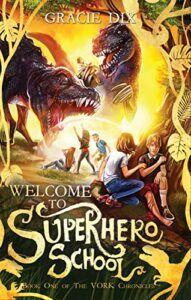
Oliver, Welcome to Superhero School by Gracie Dix
In the world of Dix’s teen superheroes, just about everyone has a learning disorder. While they learn about and celebrate each others’ strengths and weaknesses, they also take down dinosaurs, dragons, and evil villains with problem-solving, teamwork, and fortitude. A middle grade adventure written by an author with ADHD herself (and wrote these novels while still in high school) — read more about Dix’s own journey with the learning disorder here.
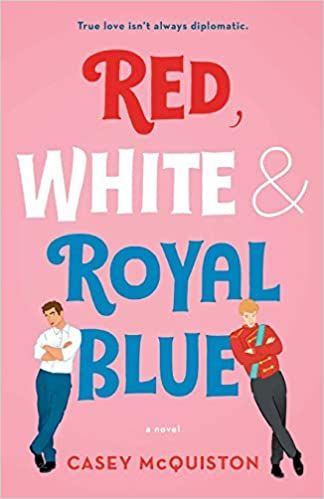
Alex, Red, White and Royal Blue by Casey McQuiston
To be honest, this book had so many wonderful representations of diversity I’d somehow forgotten this one! But it’s true — Alex, first son of the first female president, political strategy whiz, and romantic hero, also had ADHD. He’s impulsive, has a tendency toward overstimulation, and sometimes struggles to connect to his feelings — and it all adds up to make him an unpredictable character who’s great fun to watch.
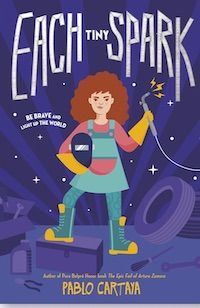
Emilia, Each Tiny Spark by Pablo Cartaya
Amid struggles to fit in and pay attention at school due to her ADHD, this heartfelt middle grade novel follows Emilia as she tries to reconnect with her father after he returns from deployment. With everything seemingly going against her, she’s never needed her father more, but it seems he has shut himself away in the family auto shop as he instead dedicates himself to repairing an old car. But as Emilia peeks in on him each day, he slowly starts to show her the work he’s doing, and allowing her to help.
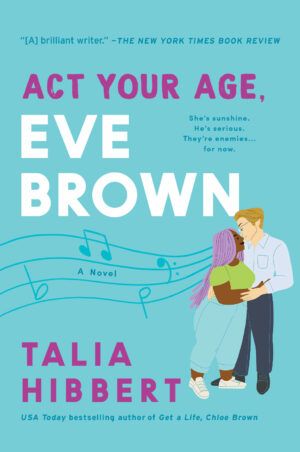
Eve, Act Your Age, Eve Brown by Talia Hibbert
As I researched for this article it became clear that the romance genre is an unacknowledged powerhouse in the space of neurodiverse representation, and this series is an excellent example. Talia has a reputation for being a hot mess, and she keeps reinforcing it with new disasters. At the start of the novel, she’s given up. At least, until she becomes determined to help B&B owner Jacob, who has broken his arm but definitely does not want any assistance. Their contrary natures put them instantly at odds, but Eve’s natural charisma and charm just might win him over yet.
Due to a clutch scene, it’s even prompted some readers to seek their own diagnoses. Hibbert herself is neurodiverse, and the insights of her experiences with autism are also evident on the page, as well as insights from ADHD friends.
4 Characters With ADHD Symptoms
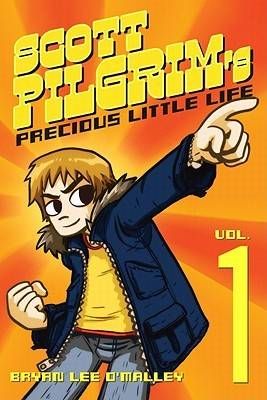
Scott, Scott Pilgrim’s Precious Little Life by Bryan O’Malley
Scott has a major case of existential ennui at the start of the series. Prone to bout of wild imagination and extravagant side bars, he just can’t seem to figure out what to do with his life, or even hold down a job. But then he is swept away by Ramona Flowers, and to win her, he must battle her Seven Evil Exes. Luckily, a lifetime of video games has prepared him perfectly for this very moment. Scott’s tendency to forget things, lose things, totally lose sight of what he’s doing and get side-tracked in deep bouts of imagination all add up to an excellent portrait of ADHD.
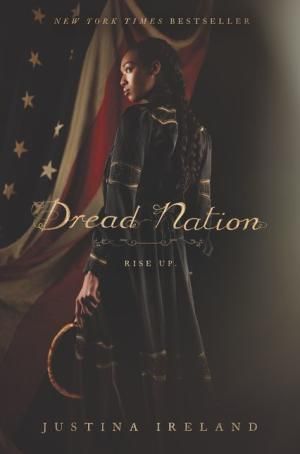
Jane, Dread Nation by Justina Ireland
In this historic dark fantasy, the Civil War turned into a war against the dead, and the fight against zombies continues as the country tries to rebuild. As a student of the School of Combat in Baltimore, Jane McKeene is both a top-tier soldier against the undead, and a constant source of trouble for Miss Preston, who leads the school. Rebellious, impulsive, impatient, and sharp as they come, it’s easy to make a case for Jane’s ADHD diagnosis.
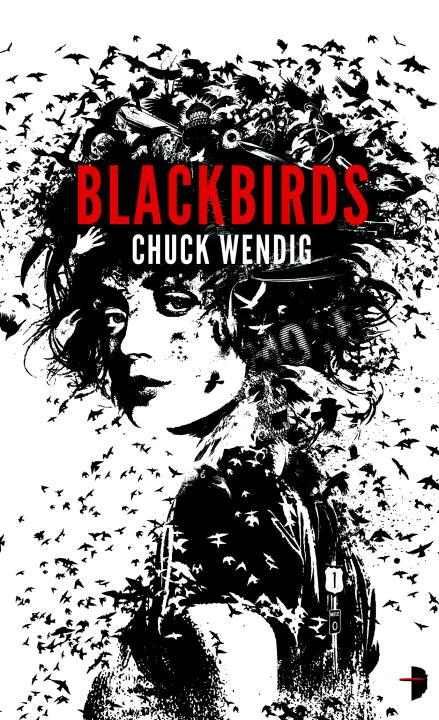
Miriam, Blackbirds by Chuck Wendig
At the start of this gritty series, Miriam Black has isolated herself and gets by on grifting empowered by her ability to see exactly when a person is going to die — she gave up a long time ago on being able to change what she sees. Miriam was an especially fun protagonist for me because she is so naturally chaotic and wildly impulse with a clearly addictive personality, but she’s also intuitive and a natural improvisational problem solver. Living with ADHD, this all rang true on a deep level.
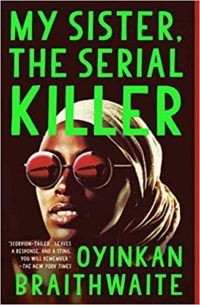
Ayoola, My Sister, The Serial Killer by Oyinkan Braithwaite
In this dark story of sibling rivalry, protagonist Korede and her sister Ayoola are completely opposites. Korede is careful, cautious and calculating in how she navigates her life, dutifully performing her work as a nurse and keeping distance from the doctor she pines for. Meanwhile, Korede is fearless and impulsive, and finds herself in one sticky situation after another as she carelessly takes on one ill-chosen lover after another, only to find herself killing them — in self-defense, of course. Ayoola may not be the brightest portrait of ADHD, but her short-sightedness, impulsivity, and even her charisma are all traits strongly associated with the learning disorder.
When ADHD gets representation in fictional characters, it’s good for everyone. Those of us with ADHD get the validation of being seen — as well as the relief of seeing they, too, can be a protagonist in their lives! Neurotypical readers gain understanding of the ways ADHD can manifest in wildly different ways, and break beyond stereotypes to see the value in how other types of brains work.
With more representation, we can build better understanding so that we can celebrate the gifts that come with ADHD not only during ADHD Awareness Month, but all year round. Picking up one of these books is a great place to start.
Source : 5 Incredible Fictional Characters With ADHD (+4 Who Are Undiagnosed But Also Totally Have It)












